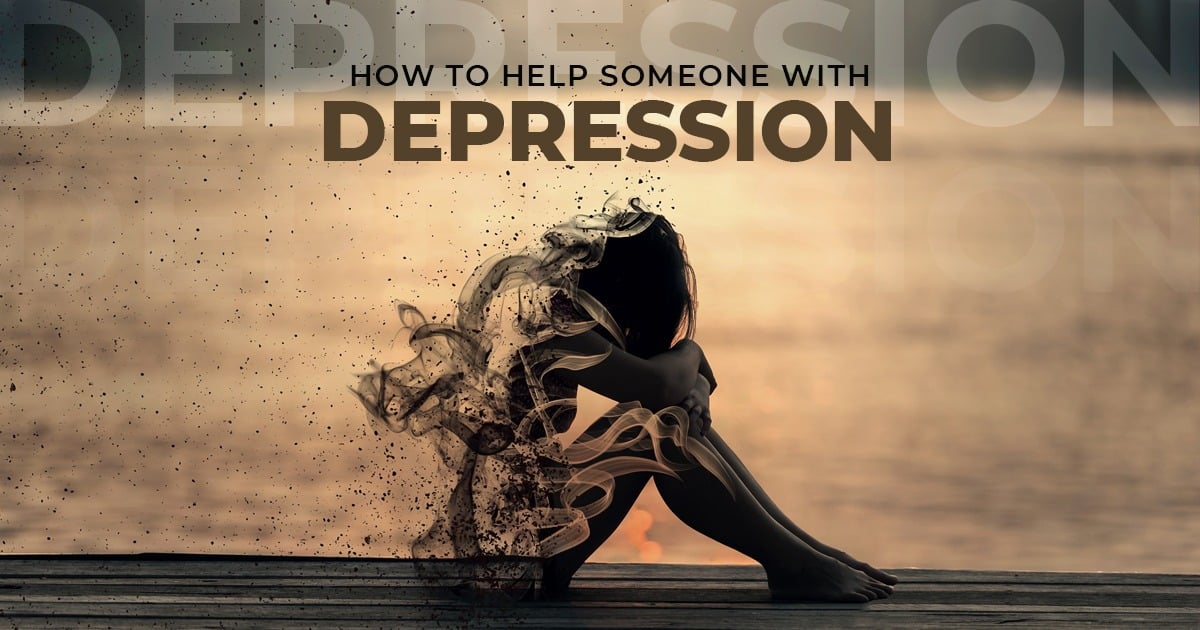Depression is not all in your head, it doesn’t need to be triggered by a traumatic event, and we do not all experience it in the same way. Clinical depression is a personal experience; these misconceptions have created a lapse in understanding and empathy. This article will share knowledge and some tips to guide you to understand your role in depression, and how you can help someone with depression.
Depression is a common and serious mood disorder that adversely affects daily life; how a person thinks, feels, and acts.
Symptoms of Depression
- Feeling sad, worthless, or shame
- Changes in appetite; weight loss or gain
- Trouble sleeping or sleeping too much
- Loss of energy or increased fatigue
- Loss of interest in activities that once brought joy
- Repeated thoughts of death or suicide
American Psychiatric Association’s latest statistics show that “one in six people (16.6%) experience depression at some point in their life.” Depression can occur at any stage in your life, but mostly, it first appears during the late teens to mid-twenties.
Women are more likely to experience depression as compared to men. Studies also show that 33% of women will experience a significant depressive episode at some point in their life. Fortunately, depression is treatable.
Understanding the Different Types of Depression
There are many types of depression associated with the level of severity and trigger causes of symptoms.
Major Depressive Disorder
A severe diagnosed type of depression is common and puts a person at high risk for suicidal ideations.
Seasonal Affective Disorder
The environment a person plays a role in this type of depression. Vitamin D deficiencies and lack of sunlight contribute to feelings of fatigue, hopelessness, and social withdrawal.
Manic Depression
Also known as Bipolar Disorder, is when a person has a chemical imbalance in their brain, resulting in extreme highs and extreme lows.
Postpartum Depression
This occurs in the weeks or months following giving birth to a child. Women that suffer from postpartum depression are at a higher risk of exhibiting major depressive disorder later in life. Dealing with depression can come with many other medical conditions; it is essential to diagnose the disorder and get proper health care instead of letting the disorder go untreated.

If someone you love is struggling with depression, they might need your help more than you realize. Here’s a list of how to help someone with depression:
1. Listen to them and validate their feelings
Learning just to listen is a valuable life tool. People with depression need to know that you are there for them through the good times and the bad. Show empathy and interest in their well-being. Communicate and try to talk through issues, but also try to be understanding if that person doesn’t feel like talking just yet. Keep in mind that someone struggling with depression may want to talk about how they feel, but they might not be looking for advice.
Pro tip: When talking about a person’s problems, don’t be afraid first to ask, “Are we looking for solutions or just looking to vent?”
2. Help them find support and counseling
In 2021 the stigma for seeking professional help for your mental health is starting to change. After 2020, more people than ever are struggling with mental illnesses, and it’s important to know there’s no shame in getting help. We all deserve to be happy. Finding a therapist can be overwhelming, especially if you’re having motivational issues. If your loved one shows interest in counseling, offer to help them with the process of getting an appointment.
3. Educate yourself about depression
You’re already reading this article, and that’s a great start! (Pat yourself on the back.) Doing some research will help you to understand their obstacles and how to interact with them appropriately. It’s not always intuitive on the right way to speak and react to a person who is depressed, but there is a wealth of knowledge and advice that can help with more successful interactions.
4. Be patient and understanding
Treating depression can be exhausting, both for the person in treatment and for the people around them. They may have to try different counseling approaches or medications before they finally find one that helps. They will have some good days and some bad days. Don’t assume that a good day means they’re “cured,” and try not to take it personally if they’re having a string of bad days.
5. Offer help with everyday tasks
Everyday tasks feel like a huge undertaking when living with depression, including laundry, grocery shopping, doing homework, showering, even getting out of bed can feel overwhelming. Your loved one may need help with their duties, but they may not express it. Be a source of motivation for them, lead by example, and offer to help tackle tasks together. Simply having company can make them feel much better about doing the work.
6. Support them in continuing therapy
At times, they might hint at quitting therapy altogether. Act as a voice of reason and encourage them to stick with it. They may feel like therapy is not working. Remind them that prevention is not something you can see. Regardless of how you feel while going through therapy, there’s no way to know how much worse you would feel if you weren’t.
Therapy takes time, and there is a certain amount of trial and error involved. Praise the progress they’ve made, and do your best to keep them motivated to continue growing.
Be a Rock
You may not understand the causes of depression, but that shouldn’t stop you from being able to be a solid, stable, and reliable source of support for someone who is struggling. Doing your part by listening, understanding, aiding, educating, and supporting a person with depression will make a world of difference through their struggle.
Depression frequently co-exists with substance use disorder. If you or someone you know is struggling with depression and drug use, contact us and talk to one of our care coordinators.
Opus Health will provide a luxury environment to encourage growth and progress while treating depression, substance use disorder and providing medication management services. Let us help you find the light at the end of the tunnel.




